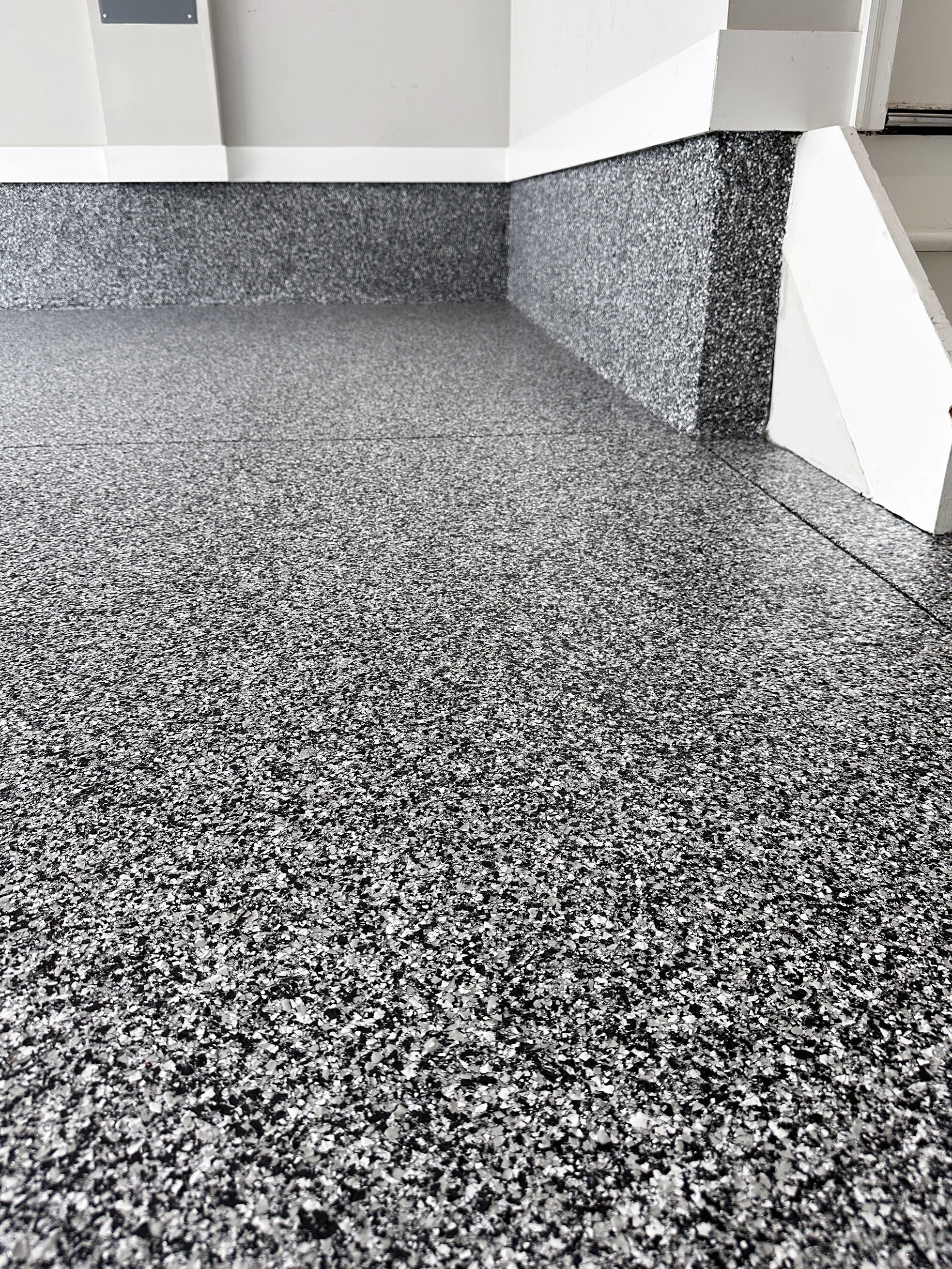The crisp air bites as you step out into your garage, the air thick with the scent of fallen leaves. You’ve finally made the decision to transform your garage floor from a cracked and dusty wasteland into a sleek, durable, and functional space. But, as you gaze at the wintery landscape, a question lingers in your mind: Can you epoxy your garage floor in the winter?

Image: www.grindkingsflooring.com
The good news is, yes, you can epoxy your garage floor in the winter, but there are some important considerations to ensure the project’s success. This guide will deep dive into the factors influencing your decision, guide you through the process, and offer tips to guarantee a beautiful and long-lasting epoxy floor, even in the midst of winter.
Understanding the Challenges of Winter Epoxy
Epoxy flooring, with its durability and aesthetically pleasing finish, is a popular choice for garages, basements, and other spaces. However, the cold temperatures and potentially snowy conditions of winter present unique challenges that can affect the epoxy’s curing process and overall outcome.
The most significant factor is temperature. Epoxy requires a minimum temperature to cure properly. Lower temperatures can significantly slow down the curing process, resulting in a soft, weak epoxy that may not fully bond to the concrete. The specific temperature requirements can vary depending on the type of epoxy you choose, with some requiring temperatures above 50°F while others can tolerate slightly lower temperatures.
Another concern is moisture. Winter brings increased humidity and, in many areas, snow, which can lead to damp garage floors. Moisture can interfere with the epoxy’s curing process, making it more prone to cracking, bubbling, and peeling.
Factors Determining Feasibility: Can You Epoxy Your Garage Floor in the Winter?
Knowing what to expect can help you decide if winter is the right time to epoxy your garage floor.
Here are some questions to ask yourself:
- What’s the average winter temperature in your area? The ideal temperature for epoxy application is between 50°F and 90°F. If your winter temperatures consistently dip below 50°F, adding heat to your garage is necessary.
- How well-insulated is your garage? A well-insulated garage will retain heat more effectively, making it easier to maintain the right temperature for epoxy curing.
- Is there any risk of moisture on the garage floor? If your garage floor is susceptible to condensation, snow, or leaks, you’ll need to take steps to ensure it’s completely dry before applying the epoxy.
- What is the epoxy type? Some epoxy coatings are designed for colder temperatures than others. Consult the manufacturer’s recommendations for guidance.
If you’re confident you can meet the temperature and moisture requirements, then you can proceed with your epoxy flooring project in the winter.
Steps to Prepare Your Garage Floor
Proper preparation is crucial for a successful epoxy floor, regardless of the season. Here are the steps you need to take:
- Clean the garage floor thoroughly: Remove all debris, dirt, oil stains, and any loose paint or coatings. Use a powerful degreaser if necessary.
- Patch any cracks or holes: Fill any cracks or holes with a concrete patching compound, ensuring the patching is level with the surrounding floor.
- Grind the concrete floor: Grinding the floor with a concrete grinder will create a rough surface and help the epoxy adhere better.
- Prime the floor: Apply a concrete primer to seal the floor and create a barrier against moisture, improving the epoxy’s adhesion.

Image: www.madisonartcenter.org
Epoxy Application in the Winter: Tips for Success
Now, let’s delve into the application process, keeping the winter conditions in mind:
- Heat the garage: Use a space heater or other heating methods to raise the garage temperature to at least 50°F, ideally closer to 60°F. Remember to ensure adequate ventilation to avoid creating a fire hazard.
- Maintain a steady temperature: Fluctuations in temperature can affect the epoxy’s cure, so try to maintain a consistent temperature throughout the curing process.
- Use a winter-rated epoxy: Choose an epoxy formulation explicitly designed for cold temperatures, as they have a faster cure time and can withstand lower temperatures.
- Apply in thin layers: Apply the epoxy in thin, even coats to allow for proper curing. Multiple thin coats are better than one thick coat.
- Consider a “rapid cure” epoxy: Rapid cure options are ideal for winter application as they dry faster.
- Add “heat lamps” for faster curing: If possible, using heat lamps can help speed up the epoxy’s curing time and reduce the overall time needed to maintain the desired temperature.
Expert Tips for Winter Epoxy Flooring
For some expert advice, we reached out to a seasoned contractor specializing in epoxy flooring. He provided these helpful tips:
- “Don’t rush the process: Let the epoxy cure completely before applying any additional coats or traffic. The cure time will be longer in colder temperatures,” he emphasizes.
- “Use a good quality epoxy primer: This will help enhance adhesion,” he adds.
- “Invest in a moisture meter to check for any presence of moisture on the floor. Even a small amount of moisture can significantly impact the epoxy’s lifespan.”
Can I Epoxy My Garage Floor In The Winter
Conclusion: Epoxy Flooring in the Winter: It’s Possible!
Epoxy flooring in the winter may seem daunting, but with proper preparation, the right products, and a sprinkle of extra care, it’s a feasible undertaking. Consider the factors discussed, follow the steps outlined, and you can transform your garage into a beautiful and functional space, even when the snow is falling outside.
Remember, always consult the manufacturer’s instructions for your specific epoxy product. With the right planning and execution, you can enjoy a durable and stylish epoxy floor in your garage all year round.






